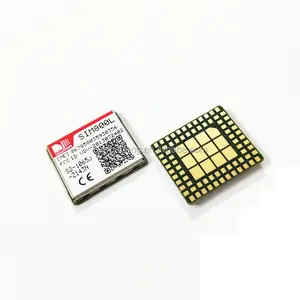Exploring Android GPS GPRS Modules
The realm of location-based services is continually evolving with the integration of Android GPS GPRS modules into various applications. These modules are pivotal components in modern tracking and navigational systems, providing real-time positional data for a multitude of devices. This introduction delves into the intricacies of these modules, their types, applications, and the technological synergy that powers them.
Types and Applications
There exists a diverse range of GPS modules for Android, each tailored to specific applications. From personal tracking devices to sophisticated fleet management systems, these modules serve as the cornerstone for location-based solutions. They are commonly embedded in vehicles, personal handheld devices, and even in complex asset management tools, ensuring seamless outdoor and, in some cases, indoor tracking capabilities.
Technical Features and Materials
The technical prowess of an Android-compatible GPS module lies in its ability to accurately process signals from GPS satellites. Coupled with GPRS technology, these modules facilitate not only pinpoint positioning but also the transmission of data over cellular networks. The materials used in constructing these modules are selected for durability and performance, ensuring reliable operation in diverse environmental conditions.
Advantages of Integration
Integrating a GPRS GPS module for Android into devices offers several advantages. It enhances the value of applications by providing geographical context to the data collected. This integration is crucial for applications that rely on location intelligence, such as logistics, emergency services, and personal security. The fusion of GPS and GPRS technologies ensures that devices are not only capable of determining their location but also of communicating it effectively.
Choosing the Right Module
Selecting the appropriate GPS GPRS module requires an understanding of the specific needs of the application. Factors such as the module's sensitivity, power consumption, and size play a significant role in its suitability for different scenarios. It is essential to consider the environment in which the module will operate, as well as the precision required by the application.
Conclusion
In conclusion, Android GPS GPRS modules are integral to the fabric of contemporary location-based services. Their versatility and adaptability make them suitable for a wide range of applications, ensuring that users have access to accurate and reliable location data. As the demand for sophisticated tracking solutions grows, these modules will continue to play a critical role in the development of innovative applications.










































 浙公网安备 33010002000092号
浙公网安备 33010002000092号 浙B2-20120091-4
浙B2-20120091-4